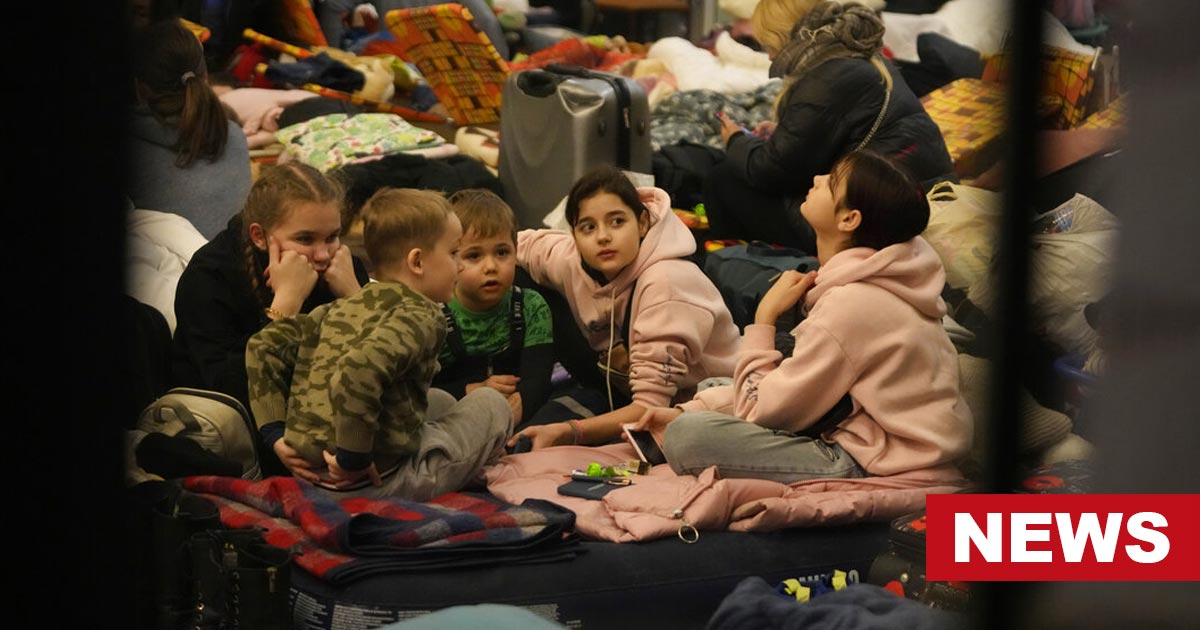As a clinical psychologist and the director of training at Lifeline for Kids, a nonprofit center for childhood trauma at UMass Chan Medical School, Zlatina Kostova has been involved in a project since March 2022 that provides trauma therapy for Ukrainian children and families affected by the war.
This initiative, called “Trauma-Focused Cognitive Behavioral Therapy Ukraine”, is a collaborative effort between German researchers and several organizations. In her role, she offers online training and consultation to Ukrainian therapists who are working directly with Ukraine’s PTSD-affected children.
Writing for the UK news outlet The Conversation, Kostova said her experience has underscored the immense importance of intervening directly during ongoing trauma and at an early stage in a person’s life to facilitate the healing process.
In the initial stages of the war, her primary responsibility was to educate therapists about this specialized form of treatment, enabling them to provide counseling to children and their families who had been impacted by the conflict.
Given that these children were still exposed to an ongoing threat in Ukraine, it was crucial to help them differentiate between real dangers and triggers that reminded them of their traumatic experiences.
Therapists taught relaxation techniques to help children manage the stress triggered by sirens or the need to relocate to a safer location. Furthermore, a team of international trainers addressed secondary trauma experienced by mental health care providers.
Preliminary outcomes of the project indicate that over 130 clinicians have received training in trauma-focused cognitive behavioral therapy, and they have gathered data from more than 140 children and caregivers. The therapists have expressed high levels of satisfaction with the training they received.
The young population who experiences complex childhood trauma in war develops a distinct brain structure and chemistry, compared to their non-traumatized peers. Research demonstrates that this trauma also affects their bodies. Prolonged stress exposure in PTSD triggers the continuous activation of the stress response system, which involves neural connections associated with fear, anxiety, and impulsive reactions.
Even in the absence of a real threat, the fight-flight-freeze response, located in the amygdala—the primitive, survival-oriented part of the brain—remains perpetually active. Simple stimuli, such as a change in facial expression, can activate the fear circuits.
The chronic stress response leads to the release of cortisol and adrenaline,hormones that can have cascading effects on bodily systems, immune suppression, and alterations in normal responses to the environment. Additionally, brain regions involved in problem-solving, learning, and memory are less developed in children who have experienced trauma.
The trauma-focused cognitive behavioral therapy aimed at treating trauma in Ukraine’s children helps them to understand how past trauma affects their thoughts and behavior. Using storytelling and trauma narration techniques, children express their experiences through words, art, or music.
Therapists guide them in identifying distorted thoughts and reframing their perspectives, reducing symptoms like hyper-vigilance and intrusive thoughts. By incorporating trauma into their life stories, children discover resilience and inner strength.
Therapy typically involves 8-25 sessions based on the complexity of symptoms. The presence of a supportive caregiver is crucial, and sharing the child’s narrative with them allows for validation and acknowledgment of the child’s bravery.
Recent studies have consistently shown the effectiveness of this form of therapy in treating trauma in Ukraine’s war children and young adults aged 3-21 years. Not only does it reduce risks of co-morbid mental health disorders like depression, it also empowers children to transform their narratives from stories of brokenness to heroic tales.
Moreover, the benefits of therapy in the healing journey are enduring, further enhanced by the presence of a safe, nurturing, and predictable caregiver. Standing at the edge of the PTSD Awareness Month, it does us well to remember that children possess inherent psychological resilience and, with appropriate treatment and support from caregivers and professionals, they can heal and flourish.
In this regard, Kostova even quoted a sixteen-year-old girl availing trauma therapy for Ukrainian children in the program. The teenager had said: “This therapy has completely changed my life for better. I now wake up everyday without having this weight of shame and depression hanging on me. I can finally live my life without feeling like I’m going to break down at any second.”
























